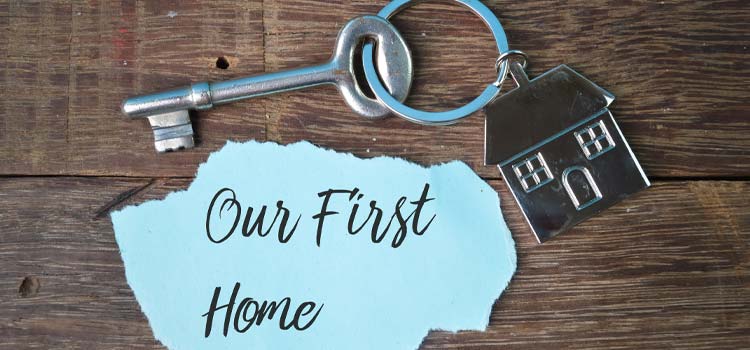If you’re a first-time homebuyer, there’s no shortage of things that will need to be taken care of. And it doesn’t stop with just finding the right place. You’ll also have to get familiar with mortgage rates, learn about real estate transactions and even figure out how to hire a home inspector.
With so much information on hand, it can be tough knowing where to start or what you need to know in order for your purchase to go smoothly. That’s why we’ve compiled all the most important questions and answers into one convenient location!
The most frequently asked questions for first-time buyers
To help you get to grips with your first home purchase, we’ve collected the most frequently asked questions on the subject, including:
What are the steps of buying a house?
There are a number of steps to buying a house – it’s not as simple as just handing over a cheque! In order, they are:
- Finding the right property – you can use an estate agent or look for properties yourself. Make sure you know exactly what you’re looking for and that the features of your potential new home are what you want.
- Finding the right mortgage – make sure that your credit rating is in good order, and get several quotes for different mortgages.
- Making an offer – you should make a written offer to the seller, and they may ask for a deposit. Once both parties accept an offer then this becomes legally binding – you will have a set period of time in which to complete your purchase or else face penalties such as legal fees or losing your deposit.
- The survey and valuation process – a survey will check the quality of a property’s construction and this is carried out by a chartered surveyor. This report can help you decide whether to proceed with your purchase or not, but it doesn’t mean that no problems exist. The valuation process helps determine how much money should be paid for any given property.
- Contract negotiation – once you have a survey and valuation in place, the buying process will continue with negotiations.
- Possession – at this point your solicitor will begin work on drawing up contracts that legally transfer ownership of the property from seller to buyer. This final stage is known as ‘possession’.
- Completion – once all these steps are complete, you’re ready to take ownership of your new home. This is known as ‘completion’.
What should I be aware of when buying a house?
There are a few things you need to bear in mind when purchasing a property. These include:
- Legal fees – these will typically amount to around $600-$800.
- Stamp duty – this is payable on purchases over $125,000 (rates vary depending on purchase price)
- Survey costs – surveys can cost between $300 and $2000, depending on the size and age of the property
- Building survey – this is more thorough than an RICS homebuyer report and will highlight any structural problems, but can cost up to $2500.
As well as these costs, you should also bear the following in mind:
Set aside enough money for legal fees (around £$600), stamp duty ($1560 on a purchase of over $250k), and surveys (between $300 and $2000 depending on size/age of property).
You may need to set some money aside for repairs or redecoration too. Be sure to budget carefully!
How much can I afford to spend on my first home?
Your budget for your first home will depend on your salary, how much you have saved up, and above all your credit rating. The route to buying a home will be far smoother if you already have an established good credit history.
Aside from the actual cost of buying a place – there are lots of other costs that come with owning a house! You’ll need to budget for everything from stamp duty (which is payable on all properties costing over $125,000) and solicitors’ fees to survey costs and mortgage arrangement fees.
Generally, you should expect to spend around three percent of the property’s value on conveyancing fees – so if your property costs $200,000 you’ll be looking at a bill of $6000. Bear in mind that these are just average figures – they can vary greatly depending on the solicitor you choose and the complexity of the purchase.
You may also have to pay for a homebuyers report or a structural surveyor – which will cost between $300 and $2000 depending on the size/age of the property).
You may need to set some money aside for repairs or redecoration too.
Do I need money for closing costs when purchasing a new property?
Closing costs usually amount to between two and five percent of the purchase price – so if your new home costs $200,000 you’ll be looking at a bill of between $4000 and $10000.
Get Expert Sales Advice Today!
Northwest Realty Group is committed to making sure you are living your “happily ever after” in your dream home.
We’re here to help you make home buying and selling an easy and enjoyable process from start to finish.
Our agents will work closely with you every step of the way so you can have peace of mind knowing that we’ll be there for any questions or concerns you may have. If you want to buy or sell property, then contact us today at 702-677-0039!






